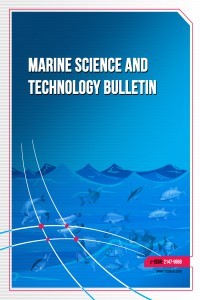
Marine Science and Technology Bulletin
Yazarlar: Semih KALE, Tuba EJDER, Secil ACAR, Olcay HİSAR, Fatih MUTLU
Konular:Deniz ve Tatlı Su Biyolojisi, Mühendislik, Ortak Disiplinler
Anahtar Kelimeler:Climate change,Change-point analysis,Trend analysis,Sarıçay,Streamflow
Özet: The global warming and the associated climate change lead to significant problems related to sustainability of natural resources. The observations and research on this issue have shown that most of the water resources have been affected by this phenomenon. These effects of global warming on water resources can be listed as decreased amount of water and droughts in mid-latitude belt. In the current study the changes in the flows of Sarıçay stream in Çanakkale and the time series of the climate parameters related to the region were determined and trends of these variations were estimated. A 34-years data set regarding the river flows between 1978 and 2011 as well as some annual climate parameters such as temperature, evaporation and precipitation have been collected by three meteorological observation stations (Bozcaada, Gökçeada, Çanakkale) for 43 years were used. Pettitt change-point analysis was used to determine the change points for streamflow and climatic parameters. Box-Jenkins method and the ARIMA model were used for trend analyses. Results showed that there was a decrease in precipitation and streamflow on the contrary an increase in evaporation and temperature. However, these changes were statistically insignificant ( P > 0.05). In conclusion, climate change effects on river streamflow could be unstable and many factors such as latitudinal location, anthropogenic effects, agricultural activities, population density and residential areas could affect the streamflow.